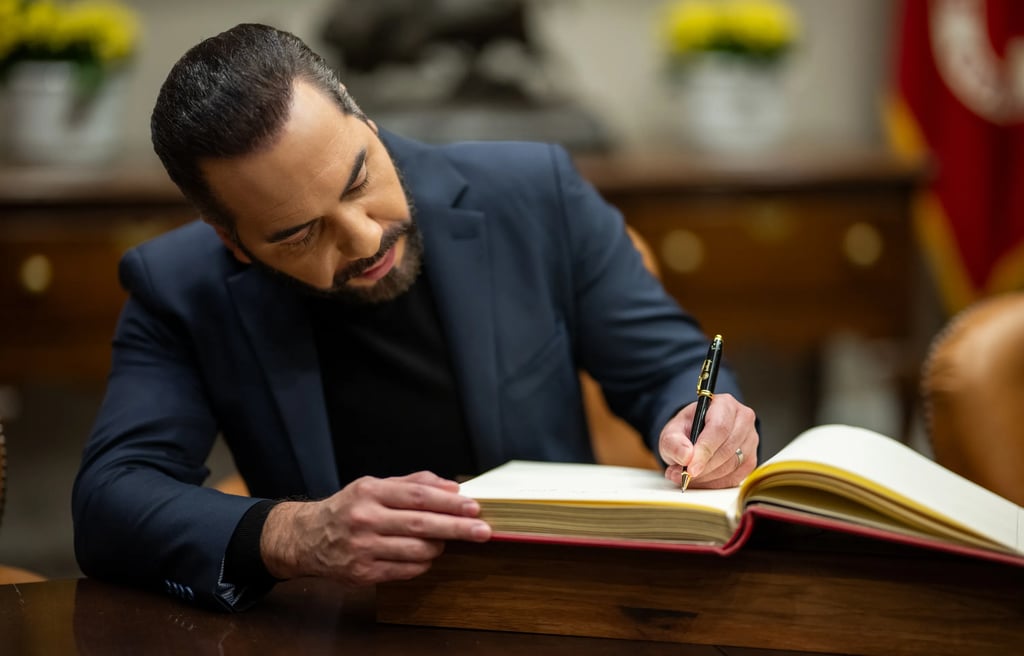El Salvador Approves Indefinite Presidential Re-Election and Extends Term Limits
El Salvador’s ruling party has passed sweeping constitutional reforms that allow President Nayib Bukele to run for office indefinitely and extend presidential terms to six years. The move has drawn fierce opposition amid growing international concerns about democratic backsliding.
WORLD NEWSPOLITICS
8/1/20253 min read


El Salvador Greenlights Indefinite Presidential Re-Election, Extends Term Lengths to Six Years
SAN SALVADOR, EL SALVADOR — El Salvador’s Legislative Assembly, dominated by President Nayib Bukele’s New Ideas party, has approved a set of sweeping constitutional reforms that will allow indefinite presidential re-election and extend the length of presidential terms from five to six years.
The controversial reforms were passed late Thursday by a 57–3 vote, leveraging the ruling party’s supermajority to push through a proposal that many observers say could reshape El Salvador’s democracy for years to come.
From Ban to Endorsement: A Constitutional Shift
Until recently, El Salvador’s constitution explicitly barred re-election to the presidency. However, the landscape shifted dramatically in 2021 when Bukele-backed judges on the country’s top court ruled that such a restriction violated the president’s human rights, clearing the path for his successful second-term bid last year.
Thursday’s amendment not only formalizes that judicial interpretation but eliminates the requirement for run-off elections and brings presidential, legislative, and municipal elections into alignment, starting in 2027.
Ana Figueroa, the New Ideas legislator who proposed the measure, argued that the presidency was the last elected office without the right to seek indefinite re-election, unlike mayors and federal lawmakers.
Bukele’s Consolidation of Power
The vote is the latest chapter in a broader consolidation of power that has unfolded since 2021, when Bukele’s party removed constitutional court magistrates in what critics called a direct attack on the judiciary's independence. Since then, the president’s popularity—largely fueled by his aggressive crackdown on gang violence—has only increased.
Bukele, who once jokingly referred to himself as the “world’s coolest dictator,” has not publicly commented on the new reforms. But Thursday’s vote all but ensures he will have the legal right to seek another term beyond his current tenure, which is now set to end two years earlier in 2027 under the new electoral schedule.


Fierce Opposition: ‘Democracy Has Died’
Not all lawmakers welcomed the changes. Marcela Villatoro, of the right-leaning Nationalist Republican Alliance (ARENA), was among the few dissenters. She sharply warned fellow lawmakers, saying:
“You don’t realize what indefinite re-election brings: it brings an accumulation of power and weakens democracy.”
Villatoro accused the ruling party of exploiting the summer holiday period to rush through the reform with minimal public scrutiny, calling the move a death knell for democracy.
Her concerns echo growing unease among international observers, many of whom have raised alarms over recent government crackdowns on critical voices—including the arrests of prominent lawyers and the forced relocation of a major human rights group due to safety concerns.
Bukele’s Global Standing: A Shift in U.S. Relations
Initially met with skepticism by the Biden administration, Bukele’s aggressive style of governance has found new political oxygen with the return of Donald Trump to the White House. Bukele quickly positioned himself as a Trump ally, even agreeing to accept deportees from third countries into a newly built prison complex intended for gang members.
Though his leadership has drawn condemnation for curbing civil liberties, many Salvadorans have embraced Bukele’s authoritarian streak as a necessary response to years of instability. His tactics have inspired regional imitators, reshaping how power and governance are perceived in Central America.
What Comes Next
The long-term implications of Thursday’s vote are still unfolding, but what is clear is that El Salvador’s political future now hinges more than ever on one man. With term limits abolished and the constitutional framework altered, Nayib Bukele is poised to remain at the center of Salvadoran politics for the foreseeable future.
As Vice President of the Assembly Suecy Callejas declared after the vote:
“Power has returned to the only place it truly belongs … to the Salvadoran people.”
For others, however, the changes represent a slippery slope toward entrenched authoritarianism—a path many fear El Salvador has now officially stepped onto.
— Reported by Orbital News
Credit: Legislative Assembly of El Salvador & WhiteHouse.gov
Connect
Connecting You to Global News
Explore
Support Orbital News
© Orbital News 2025. All rights reserved.